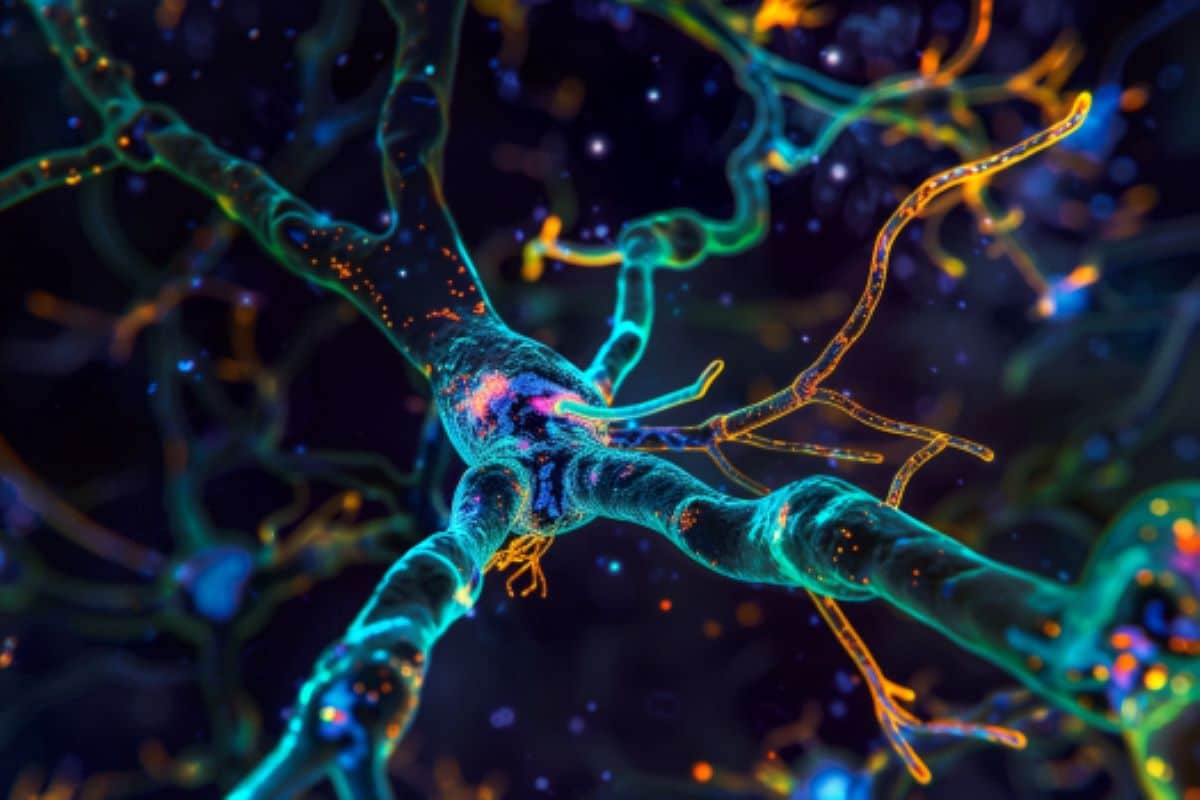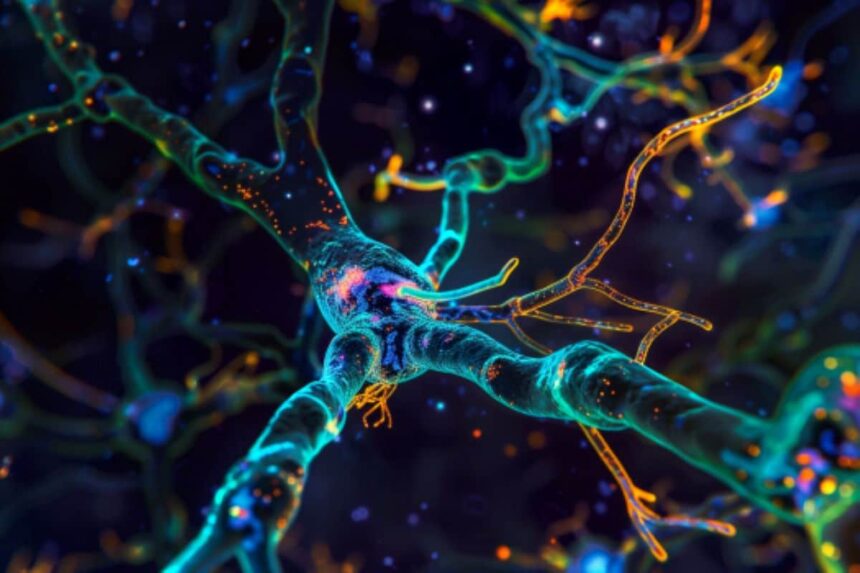Abstract: Researchers found a brand new function for opioid receptors within the improvement of the enteric nervous system (ENS), the “mind within the intestine.” This discovering challenges the traditional understanding of opioid receptors, highlighting their significance past ache administration and dependancy.
The research used zebrafish embryos to disclose that opioid receptors are essential for the formation of intestine nerves, probably impacting therapies for congenital digestive issues.
Key Info:
- Opioid receptors are important for the event of the enteric nervous system.
- Disruption of those receptors impacts the migration and maturation of intestine neurons.
- Findings could result in new therapies for congenital digestive issues.
Supply: Rice College
Researchers at Rice College have revealed a beforehand unknown operate of opioid receptors within the improvement of the enteric nervous system (ENS), also known as the “mind within the intestine.”
This discovery challenges standard understanding of opioid receptors, shedding new mild on their significance past ache administration and dependancy.
Led by Rosa Uribe, an assistant professor of biosciences at Rice and a Most cancers Prevention and Analysis Institute of Texas (CPRIT) Scholar, the analysis group recognized the genes vital for ENS improvement by conducting a collection of experiments utilizing zebrafish embryos, which share many genetic similarities with people.

The ENS is a community of neurons within the gastrointestinal tract that performs an important function in regulating digestive processes.
The group’s analysis was printed within the PLOS One journal on Could 29.
“We discovered that the opioid signaling pathway is required for the developmental formation of nerves within the intestine, an understudied a part of the physique referred to as the enteric nervous system,” Uribe stated.
Utilizing gene-editing strategies, the researchers selectively eliminated, or knocked out, a single gene from a complete inhabitants of zebrafish embryos to look at how these genetic alterations affected the formation of intestine nerves. This course of revealed novel genes, together with these encoding opioid receptors, implicated in ENS improvement.
Opposite to earlier assumptions, the researchers discovered that opioid receptors should not solely concerned in ache notion and dependancy however are additionally integral to the developmental formation of intestine nerves.
“When these receptors have been deactivated, the migration and maturation of enteric neurons alongside the intestine have been disrupted,” Uribe stated. That disruption signifies the essential function of opioid signaling pathways in ENS improvement.
The group’s findings open up new avenues for understanding digestive well being and illness. Many infants born with lacking intestine nerves expertise difficulties in passing stool, highlighting the potential influence of this analysis on pediatric drugs. Understanding the function of opioids in intestine improvement could pave the way in which for modern therapies for congenital digestive issues.
“Our analysis unveils a brand new facet of opioid receptor operate and highlights their surprising function in intestine improvement,” Uribe stated. “This might have profound implications for understanding digestive issues and probably result in new therapeutic approaches.”
Furthermore, the research recognized different genes, resembling VGF, with implications for gastrointestinal well being. Additional analysis on this space may uncover extra insights into the advanced interaction between genes, the nervous system and digestive operate, stated lead researcher and postdoctoral fellow Rodrigo Moreno Campos.
“Our discovering is unbelievable and opens up an entire new avenue of enteric neurodevelopmental biology analysis within the area,” Moreno Campos stated. “The implications for congenital, neurological and metabolic illness are nice.”
Uribe joined Rice in 2017 as a CPRIT Scholar. She earned a bachelor’s diploma in cell and molecular biology from San Francisco State College in 2006 and a doctorate in molecular cell and developmental biology from the College of Texas at Austin in 2012. In 2020, she gained an NSF CAREER Award.
Funding: This research was supported by the Nationwide Institutes of Well being grant R01DK124804 awarded to RAU, and by Nationwide Science Basis grant 1942019 awarded to RAU The funders had no function in research design, information assortment and evaluation, resolution to publish, or preparation of the manuscript.
About this neuroscience analysis information
Writer: marcy-de-luna
Supply: Rice College
Contact: Marcy de Luna – Rice College
Picture: The picture is credited to Neuroscience Information
Unique Analysis: Open entry.
“A focused CRISPR-Cas9 mediated F0 display identifies genes concerned in institution of the enteric nervous system” by Rosa Uribe et al. PLOS One
Summary
A focused CRISPR-Cas9 mediated F0 display identifies genes concerned in institution of the enteric nervous system
The vertebrate enteric nervous system (ENS) is a vital community of enteric neurons and glia resident throughout the whole gastrointestinal tract (GI). Overseeing important GI features resembling intestine motility and water steadiness, the ENS serves as a pivotal bidirectional hyperlink within the gut-brain axis. Throughout early improvement, the ENS is primarily derived from enteric neural crest cells (ENCCs).
Disruptions to ENCC improvement, as seen in situations like Hirschsprung illness (HSCR), result in the absence of ENS within the GI, significantly within the colon. On this research, utilizing zebrafish, we devised an in vivo F0 CRISPR-based display using a strong, speedy pipeline integrating single-cell RNA sequencing, CRISPR reverse genetics, and high-content imaging.
Our findings unveil varied genes, together with these encoding opioid receptors, as attainable regulators of ENS institution. As well as, we current proof that means opioid receptor involvement within the neurochemical coding of the larval ENS.
In abstract, our work presents a novel, environment friendly CRISPR display concentrating on ENS improvement, facilitating the invention of beforehand unknown genes, and rising information of nervous system development.






